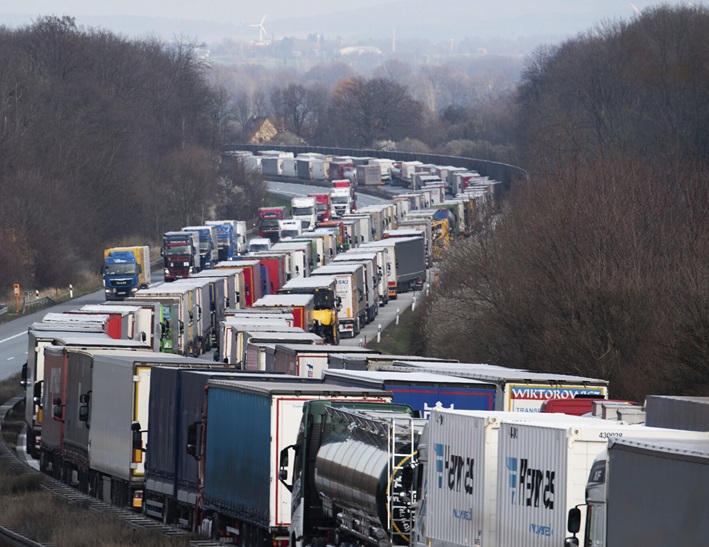Truckers suspend blockade of Ukraine border after agreement with Polish government
Polish truckers who have been blocking border crossings with Ukraine since early November have agreed to suspend their protest until 1 March after signing an agreement with Poland’s government.
Interior minister Dariusz Klimczak expressed his appreciation for the protesters’ “constructive cooperation”. However, he noted that the temporary deal marks the beginning of further negotiations.
“This does not mean the end of dialogue,” said Klimczak. “On the contrary. We are starting very intensive, constructive talks that are expected to produce a concrete result.”
One of the protest leaders, Rafał Mekler, the owner of a trucking company, also confirmed that the blockades had been suspended until 1 March but warned that they would “return if our demands are not met”.
“We are giving the ministry a mandate of trust. This is not a capitulation but a strategic pause,” wrote Mekler, adding that all infrastructure, containers and trailers will be left at the border in case the protest needs to be restored.
The agreement relates to three border crossings: Korczowa, Hrebenne and Dorohusk. A fourth, Medyka, has also been blockaded by farmers, but they agreed to suspend that protest earlier this month after reaching an agreement with the government over their demands.
Polish truckers launched their blockades on 6 November due to what they said was unfair competition from Ukrainian carriers after the EU relaxed entry permit rules following Russia’s invasion of Ukraine.
Their action has resulted in huge queues of trucks waiting to cross the border, with some drivers having to wait weeks in freezing winter temperatures and with few facilities available to them.
Today’s agreement with the government is made up of seven points, including the Polish government pledging to seek changes to EU rules, secure EU funding for transport firms, and introduce stronger enforcement of controls on the Ukraine border.
“I am grateful to the organizers of the protests for understanding how important the proper and uninterrupted operation of road border crossings is to ensure an uninterrupted supply chain, but also public safety and road traffic safety,” said Klimczak after the agreement was signed.
“I hope that by 1 March 2024, it will be possible to implement the actions indicated in the agreement we signed,” he added. “My goal is to strive for balance in the international road freight transport market between Poland and Ukraine and to provide appropriate protection for the interests of domestic road carriers.”
Ukraine’s government has repeatedly condemned the Polish truckers’ protest and the EU has pushed Poland to resolve the dispute. The new government that took power last month pledged to end the blockades and has held negotiations with the protest leaders.

